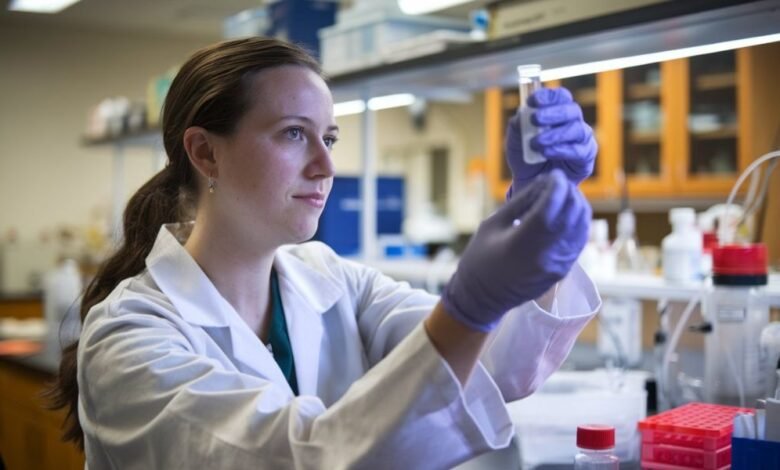Andrea Schietinger Lab Research: Transforming Cancer Immunotherapy

Introduction:
Currently, the Andrea Schietinger Lab at Memorial Sloan Kettering is advancing in cancer immunology significantly. Their jobs concern themselves with finding out why T cells are often unable to kill cancerous cells. Through examining the molecular and epigenetic factors which contribute to this, the lab is finding strategies for reversing immunosuppression. Their work is helpful in term of developing improved cancer immunotherapy, which can benefit patients with challenging cancers.
Andrea Schietinger Lab Research on T Cell Dysfunction in Tumors
Instead one can state that cancer modulates T cells into their own enemies, to become ineffective. This is the area of study of the Schietinger Lab. They were primarily to establish how T cell exhaustion occurs. In exposing these processes, they hope to discover how to make T cells remain active. This work is critical in enhancing immunotherapy.
How Epigenetics Shapes Immunity: Insights from Andrea Schietinger Lab Research
Epigenetic modifications can abrogate immune responses and this is especially the case in tumor-reactive T cells. Schietinger’s team is currently trying to identify how these changes can be reversed. They plan to “retrain” T cells in such a way that they can remain functional in their war against cancer. This could lead to sustained and intense immune reactions and that is the intention of the immune system.
Andrea Schietinger Lab Research: Mouse Models Mimicking Human Cancer
The lab employs mice models that provide conditions that are closest to human cancers. These models enable them to watch how immune cells move in the body in real circumstances. These insights contribute to adjustments in the treatment approaches they use. The purpose then is apply these observations into therapeutic strategies which will be effective in kinds headset.
Enhancing Immunotherapy: Breakthroughs from Andrea Schietinger Lab Research
Schietinger’s laboratory is concerned with enhancing the efficacy of immunotherapies. It also focuses on the molecular processes that lead to damage of the T cells. This, they aim at, so that they may come up with treatments that may eliminate current therapy hitches. Through their work, they may help to personalize and fine tune cancer therapy.
Collaborative Efforts in Cancer Treatment: Andrea Schietinger Lab Research
I had 3 out of 8 members of my Lab as well as other collaborators from other Labs to work in Schietinger Lab.” It is a professional entity based in the United States that works with clinical investigators to translate laboratory finding into clinical management. This teamwork expeditates the process of creating new therapies. It also makes sure that the direct benefits of the lab’s research is for patients.
The Future of Cancer Therapy: Andrea Schietinger Lab Research on Immunotherapy
We predict that immunotherapy is the future of cancer treatment. Schietinger’s team is at the forefront of this kind of work. Their work in the T cell dysfunction and epigenetics is a major catalyst for the new development. The conclusions are much more likely to reveal more suitable and long-standing treatment approaches across many forms of cancer.
FAQs:
This paper aims to note down what the Andrea Schietinger Lab is all about.
They look at how T cells become non-functional in dealing with cancer and then try to bring them back to life.
It is clear how the lab research T cell dysfunction but how does it test for T cell dysfunction?
Using mouse models and molecular tools, they identify mechanisms through which T cells engage with tumours.
What is the concern with, or the questions that epigenetic research aims to answer?
Modification in epigenetic patterns can inhibit immune responses; the modifications may therefore be unwound to reinstate T cell functionality.
How does the lab become integrated with other clinical groups?
It’s its mission to collaborate with clinical researchers to bring lab results into cancer patient treatments.
Explaining what it looks to achieve with its advances in immunotherapy?
They wish to identify approaches that would optimize the outcomes of cancer immunotherapies.
Conclusion:
The Andrea Schietinger Lab in particular is working on the innovative methods to address the problem of cancer immunotherapy. By exploring how host cancer controls immunity, they are identifying fresh ways to defeat it. The growth may help to bring a positive impact to cancer treatment and offer patients a chance for successful treatment. While engaging in research on these critical questions, immunotherapy appears to be even brighter for the future.